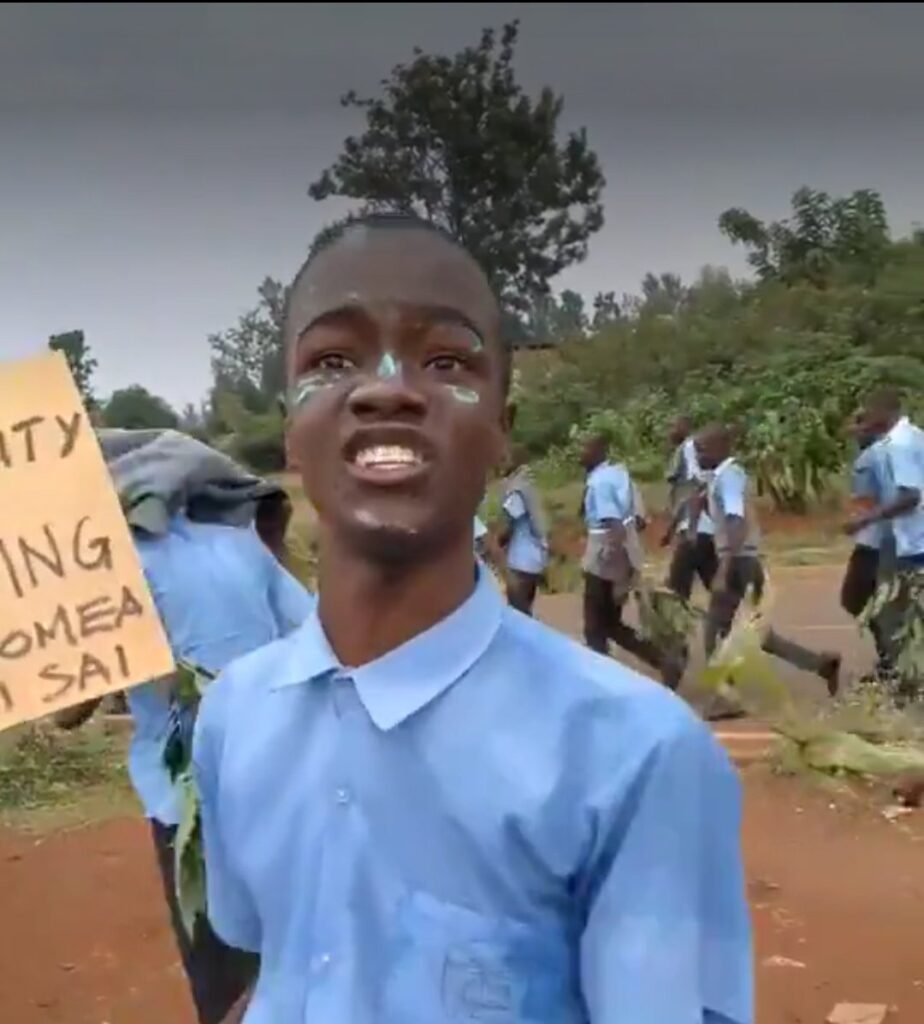In a striking display of determination, students from Majiwa Boys High School made headlines last week when they decided to march to the Kenya Power and Lighting Company (KPLC) offices to retrieve a transformer themselves.
This unusual procession was sparked by frustration after the school had been without electricity for several days. The students claimed that KPLC had demanded Kshs 100,000 before restoring their power supply, a fee that they found both exorbitant and unjustifiable.
The march began early in the morning, with hundreds of students donning their school uniforms and carrying placards that highlighted their grievances.
Chants demanding justice and an immediate resolution to their plight echoed through the streets as the students made their way to the KPLC offices. This bold move garnered significant attention from local residents and passersby, many of whom expressed solidarity with the students’ cause.
Upon reaching the KPLC offices, the students were met with a mixture of curiosity and concern from the company’s staff. Despite the initial surprise, KPLC representatives eventually agreed to meet with the school’s leadership and student representatives.
The students presented their case passionately, emphasizing the detrimental impact that the lack of electricity had on their studies and overall well-being. They argued that the prolonged power outage was not only an inconvenience but also a violation of their right to a conducive learning environment.
The standoff between Majiwa Boys High School and KPLC highlights broader issues within the country’s power distribution network. Many communities across Kenya have long complained about frequent power outages and what they perceive as exploitative practices by KPLC.
The company’s demand for a Kshs 100,000 fee before addressing the school’s issue added fuel to these sentiments, painting KPLC as a profit-driven entity indifferent to the struggles of ordinary citizens.
The students’ march and subsequent engagement with KPLC officials have sparked a wider conversation about accountability and transparency within the utility company.
Public opinion has been sharply divided, with some commending the students for their bravery and others questioning the legality and safety of their actions.
Nonetheless, the incident has undeniably brought to light the urgent need for reforms in how essential services are provided and managed in the country.
In the wake of the protest, local media outlets have extensively covered the story, further amplifying the students’ voices. Advocacy groups and civil society organizations have also weighed in, calling for immediate government intervention to ensure that such situations do not recur.
As the nation watches closely, the outcome of this confrontation between Majiwa Boys High School and KPLC could set a precedent for how similar disputes are handled in the future, potentially ushering in a new era of accountability and consumer rights in Kenya’s energy sector.


